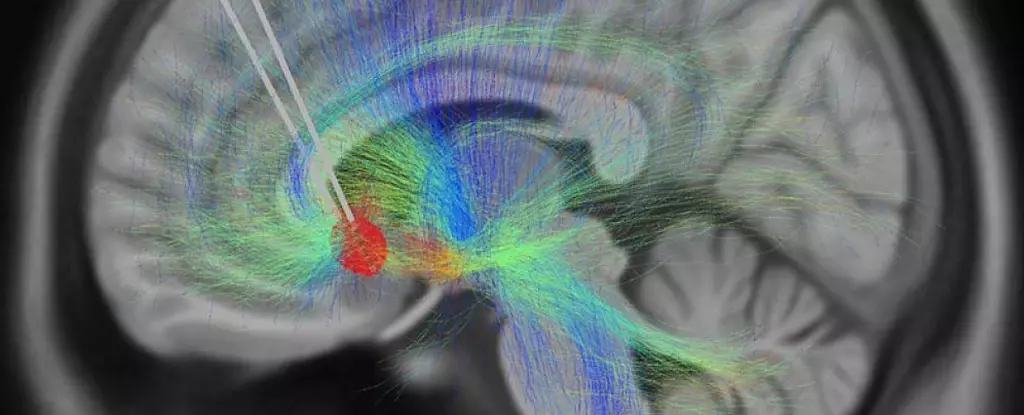

Depression is a complex mental health condition that can have devastating effects on individuals and their loved ones. Traditional methods of assessing depression rely heavily on self-reporting, which can be influenced by various factors and lack objectivity. However, a groundbreaking study has demonstrated the potential for a revolutionary approach to depression treatment and monitoring. Researchers from the Georgia Institute of Technology, the Emory University School of Medicine, and the Icahn School of Medicine at Mount Sinai have successfully utilized deep brain stimulation (DBS) therapy combined with artificial intelligence (AI) to develop a novel way of measuring changes in depression levels.
Deep brain stimulation (DBS) therapy has shown promise in treating depression, but its success has been inconsistent. Effective DBS relies on precise stimulation of the correct brain tissue, an aspect that has proven challenging. The traditional method of assessing the effectiveness of DBS relies on patients reporting their mood, which can be influenced by external stressors. To overcome this limitation, the research team explored the implementation of AI analysis alongside electrode implants to pinpoint and track changes in brain activity patterns triggered by DBS.
In this study, 10 patients with treatment-resistant depression underwent a six-month course of DBS therapy. The AI system was trained using brain images taken at the beginning and end of the treatment process. This training allowed the AI to detect subtle neurological differences that might go unnoticed by human observation alone. By analyzing these differences, the AI was able to identify a specific brain signal that serves as a biomarker for recovery from depression. The recovery signal proved to be an accurate and reliable indicator of the effectiveness of DBS, with over 90 percent accuracy.
One of the most significant findings of this study was the AI’s ability to predict potential relapses before they occurred. In one patient, the recovery signal vanished a month before a relapse, allowing for timely adjustments to the DBS treatment to prevent further deterioration. This breakthrough not only provides valuable insights into depression treatment but also presents the possibility of personalized therapies tailored to individual patients’ needs.
The successful implementation of AI in monitoring depression and DBS therapy marks a significant milestone in mental health research. Moving away from subjective self-reporting, researchers now have access to objective neurological data, enabling a more accurate assessment of treatment efficacy. This newfound ability to track and measure changes in depression levels paves the way for a potential revolution in how depression is monitored and treated.
Although this study presents promising results, there are still significant challenges to address before widespread implementation becomes viable. Not all individuals may be comfortable with invasive procedures involving brain electrodes, which are necessary for DBS therapy. Additionally, further research is needed to validate and refine the AI system’s predictive capabilities and ensure its safety and reliability.
As we stand on the cusp of a new era in mental health care, the integration of AI and deep brain stimulation offers a promising path forward for depression treatment and monitoring. By harnessing the power of technology, researchers have achieved a breakthrough in objective measurement and prediction of depression levels. As this field continues to evolve, we can anticipate a future where depression treatments are tailored to individual needs, resulting in improved outcomes and enhanced quality of life for those living with this debilitating condition.
A groundbreaking discovery by scientists at the University of Manchester is poised to reshape the…
In an era marked by rapid ecological change, the quest for understanding environmental pollutants like…
The meteoric rise of artificial intelligence (AI) technologies is not without significant implications on our…
The landscape of quantum computing is on the verge of transformative progress, fueled by groundbreaking…
Schizophrenia is not merely a mental health issue; it is a multifaceted condition that wreaks…
Recent scientific research has illuminated the intricate web that ties our dietary choices to the…
This website uses cookies.